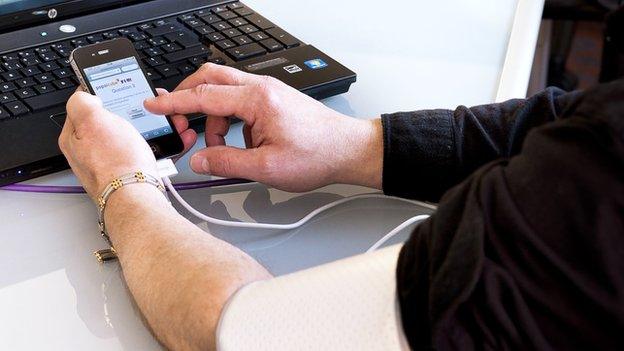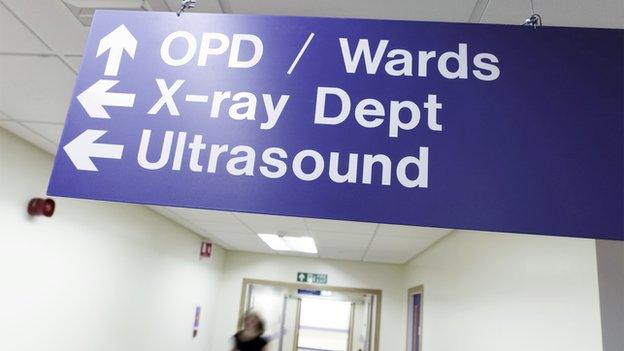Could the future hospital be in the home?
- Published

Patients can report symptoms like blood pressure remotely
High-speed online access has radically changed consumer shopping habits and transformed the economics of industries like banking and retail.
Could something similar be about to happen in healthcare?
It sounds far-fetched, but senior NHS chiefs are thinking hard about how consumer technology might be used to make life a lot easier for patients.
In an interview for BBC Radio 4's World at One, Sir Bruce Keogh, the medical director of NHS England, explained how mobile phones could be used for patient monitoring.
He demonstrated on his smart phone an app to measure his pulse and heart rate using the camera.
This could either be transmitted to GP's or hospital clinicians or in theory stored in a "cloud-based" memory for future consultation.
Too good to be true?

Hospitals will retain their importance in the NHS structure
In this new technology driven world, monitoring of patients with heart conditions and certain long-term ailments could be carried out remotely.
They would not need to be in and out of hospitals for check-ups.
Doctors could contact people if their readings showed any cause for concern. Consultations could happen via Skype with patients free to remain at home.
But its not just consumer technology.
There are ways of monitoring patients remotely.
One tele-health company, which includes a practising GP as a director, serves 2,000 patients with conditions such as heart failure across the UK.
Users answer a series of health questions each day using a tablet computer, before having their conditions remotely monitored.
Sounds too good to be true?
Many issues need to be resolved including data protection.
Smart phones and tablets tend to be accessible only to a relatively affluent section of the population.
Patients may become frustrated if broadband and mobile phone signals in their area are unreliable.
The Royal College of GPs has welcomed any initiative which makes life easier for patients but has urged caution with any rush down the consumer technology route.
Sir Bruce is quick to emphasize that there will always be a role for hospitals in local communities.
He wants to quash any suspicion of a hidden hospital closure agenda.
And it's fascinating that at the highest levels of the NHS there is serious consideration being given to what could become a healthcare revolution.